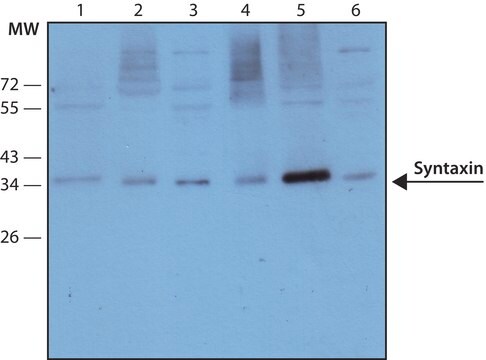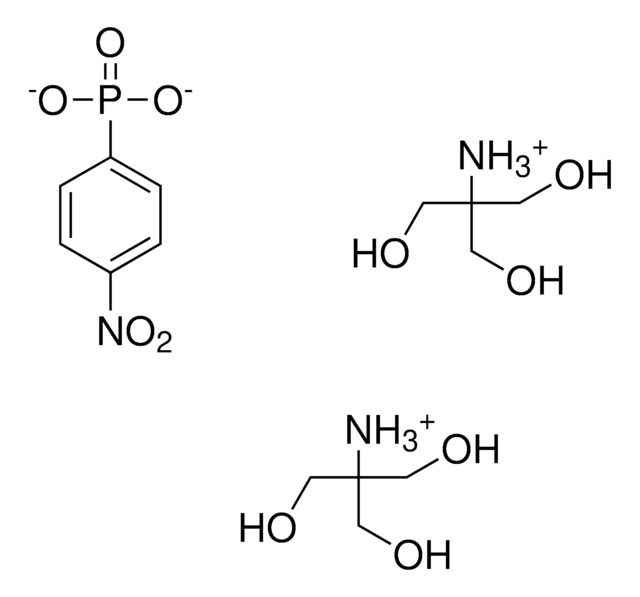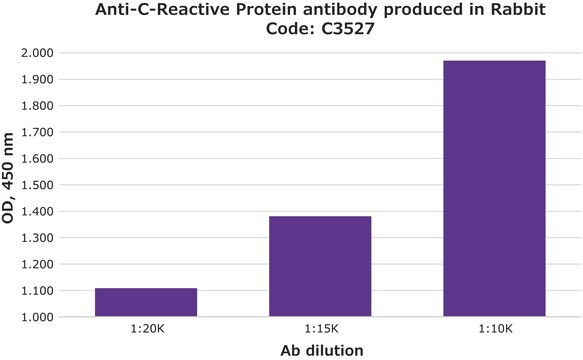E6405
Anti-Endothelial Cell Protein C Receptor antibody, Rat monoclonal
clone RCR-379, purified from hybridoma cell culture
別名:
Anti-EPCR, Monoclonal Anti-Endothelial Cell Protein C Receptor antibody produced in rat
ログイン組織・契約価格を表示する
すべての画像(1)
About This Item
結合体:
unconjugated
application:
FACS
クローン:
RCR-379, monoclonal
化学種の反応性:
human
citations:
7
テクニック:
flow cytometry: 5-20 μg/mL using HUVEC cells
おすすめの製品
由来生物
rat
品質水準
結合体
unconjugated
抗体製品の状態
purified from hybridoma cell culture
抗体製品タイプ
primary antibodies
クローン
RCR-379, monoclonal
フォーム
buffered aqueous solution
化学種の反応性
human
テクニック
flow cytometry: 5-20 μg/mL using HUVEC cells
アイソタイプ
IgG2a
UniProtアクセッション番号
輸送温度
dry ice
保管温度
−20°C
ターゲットの翻訳後修飾
unmodified
遺伝子情報
human ... PROCR(10544)
詳細
Monoclonal Anti-endothelial cell protein C receptor (EPCR) (rat IgG2a isotype) is derived from the RCR379 hybridoma produced by the fusion of mouse SP2/0 myeloma cells and lymphatic cells isolated from the superficial inguinal lymph nodes from Wister rats immunized with human EPCR-positive RE-1 cells. Endothelial protein C receptor (EPCR), also known as activated protein C receptor (APC receptor), is a protein encoded by the PROCR gene in humans and is mapped to the locus 20q11.22. EPCR is a type 1 transmembrane glycoprotein containing two domains in the extracellular region that are homologous to the α1 and α2 domains of CD1/ major histocompatibility complex class 1 (MHC) class 1 molecules. It is expressed exclusively in endothelial cells and small vessels such as capillaries of the alveolar wall in the lung.
特異性
Monoclonal Anti-Endothelial Cell Protein C Receptor (EPCR) recognizes human EPCR (49 kDa).
免疫原
human EPCR-positive RE-1 cells.
アプリケーション
Monoclonal Anti-Endothelial Cell Protein C Receptor antibody produced in rat is suitable for flow cytometry at a concentration of 5-20μg/mL using HUVEC cells.
Monoclonal Anti-Endothelial Cell Protein C Receptor antibody produced in rat may be used in immunohistochemistry.
生物化学的/生理学的作用
Endothelial protein C receptor (EPCR) also known as activated protein C receptor (APC receptor) is involved in regulation of the cytoprotective and anticoagulant pathways of protein C. EPCR is a member of the CD1/major histocompatibility complex superfamily and plays an important role in regulating the inflammatory response. It is also identified as an endothelial receptor for specific P. falciparum erythrocyte membrane protein 1 (PfEMP1) subtypes. EPCR is associated with an increased risk of venous thromboembolism (VTE).
The EPCR protein also performs other functions, like binding to proteinase. The complex then binds to macrophage 1 antigen (MAC-1) on activated neutrophils and inhibits their adhesion to activated endothelium
物理的形状
Solution in 0.01 M phosphate buffered saline, pH 7.4, containing 15 mM sodium azide.
保管および安定性
For continuous use, store at 2-8 °C for up to one month. For prolonged storage, freeze in working aliquots at −20 °C. Repeated freezing and thawing is not recom-mended. Storage in frost-free freezers is also not recommended. If slight turbidity occurs upon prolonged storage, clarify the solution by centrifugation before use. Working dilutions should be discarded if not used within 12 hours.
免責事項
Unless otherwise stated in our catalog or other company documentation accompanying the product(s), our products are intended for research use only and are not to be used for any other purpose, which includes but is not limited to, unauthorized commercial uses, in vitro diagnostic uses, ex vivo or in vivo therapeutic uses or any type of consumption or application to humans or animals.
適切な製品が見つかりませんか。
製品選択ツール.をお試しください
保管分類コード
10 - Combustible liquids
WGK
WGK 2
引火点(°F)
Not applicable
引火点(℃)
Not applicable
個人用保護具 (PPE)
Eyeshields, Gloves, multi-purpose combination respirator cartridge (US)
適用法令
試験研究用途を考慮した関連法令を主に挙げております。化学物質以外については、一部の情報のみ提供しています。 製品を安全かつ合法的に使用することは、使用者の義務です。最新情報により修正される場合があります。WEBの反映には時間を要することがあるため、適宜SDSをご参照ください。
Jan Code
E6405-200UL:
E6405-BULK:
E6405-VAR:
最新バージョンのいずれかを選択してください:
Vaheh Oganesyan et al.
The Journal of biological chemistry, 277(28), 24851-24854 (2002-05-30)
The endothelial cell protein C receptor (EPCR) shares approximately 20% sequence identity with the major histocompatibility complex class 1/CD1 family of molecules, accelerates the thrombin-thrombomodulin-dependent generation of activated protein C, a natural anticoagulant, binds to activated neutrophils, and can undergo
Fan Liu et al.
Human genetics, 134(8), 823-835 (2015-05-13)
In the International Visible Trait Genetics (VisiGen) Consortium, we investigated the genetics of human skin color by combining a series of genome-wide association studies (GWAS) in a total of 17,262 Europeans with functional follow-up of discovered loci. Our GWAS provide
Alice G Vassiliou et al.
Intensive care medicine, 39(10), 1752-1759 (2013-07-25)
Endothelial protein C receptor (EPCR) is expressed mainly in endothelial cells and is involved in regulation of the cytoprotective and anticoagulant pathways of protein C. We assessed whether haplotypes in the EPCR gene modify the risk of severe sepsis and/or
P Medina et al.
Arteriosclerosis, thrombosis, and vascular biology, 34(3), 684-690 (2014-01-18)
To confirm the effect of the endothelial protein receptor gene (PROCR) haplotypes H1 and H3 on venous thromboembolism (VTE), to study their effect on endothelial protein C receptor (EPCR) expression in human umbilical vein endothelial cells, and to investigate the
Izumi Naka et al.
Malaria journal, 13, 105-105 (2014-03-19)
Cytoadhesion of Plasmodium falciparum-infected erythrocytes to endothelial cells in microvessels is a remarkable characteristic of severe malaria. The endothelial protein C receptor (EPCR), encoded by the endothelial protein C receptor gene (PROCR), has recently been identified as an endothelial receptor
ライフサイエンス、有機合成、材料科学、クロマトグラフィー、分析など、あらゆる分野の研究に経験のあるメンバーがおります。.
製品に関するお問い合わせはこちら(テクニカルサービス)








